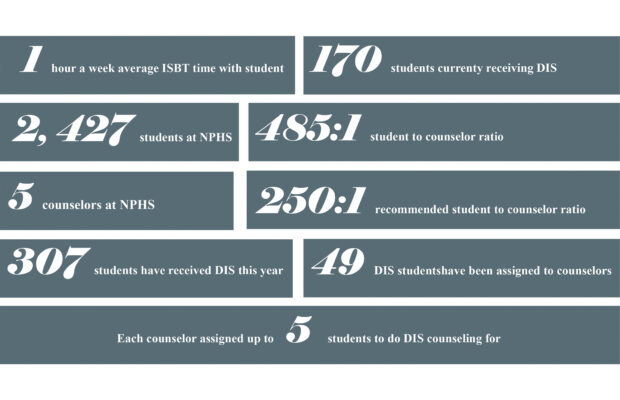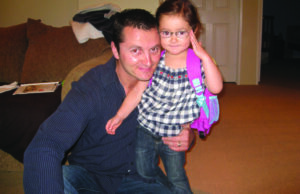School counselors should not be responsible for DIS services

- The recommended student to counselor ratio of 250:1 comes from the American School Counselor Association.
At the beginning of the 2020-2021, a decrease in the number of returning Intensive School Based Therapists (ISBTs), led the district to shift some of the workload of these employees to typical school counselors. This decision has placed responsibilities on counselors who are not best suited to fulfill them and has the potential to negatively impact the students who receive Designated Instructional Services (DIS) counseling from ISBTs.
The Prowler spoke with several counselors, ISBTs and district officials on this matter in the process of writing this editorial. Names were left out to protect the privacy of those interviewed.*
ISBTs and school counselors objectively fulfill different roles for the students they aid. “Our duties are really to provide support, emotional support, mostly for kids in special ed that have either independent counseling or more intensive counseling on their IEPs,” an ISBT* said. “That usually looks like having sessions…and making sure we have given them the support that they need in order to be successful at school.” Many ISBTs are Associate Marriage and Family Therapist (AMFTs) and Alternative Social Workers (ASW) graduates. Alternatively, school counselors only require a bachelor’s degree and some experience within a program specializing in school counseling.
While school counselors are capable of assisting with social-emotional needs, they do not have the availability to take on additional students given their current workload. “Even if we’re given one student on our caseload for DIS, let’s say [meetings are] an hour a week…that’s 36 less hours of the year that we don’t have to work with any students,” a counselor* explained. This estimate does not even account for their additional clerical work counselors would have to complete outside of weekly sessions.
The district believes it is beneficial to have school counselors, who are already familiar with students, perform the DIS counseling. “Knowing [that school counselors] have the right credentials to provide the service, and that our counselors…[have familiarity] on the campus could really assist in providing the DIS service to students,” a district official* said.
However, DIS counseling serves a very specific role in the lives of the students it services. While regular counselors may have qualifying credentials, they have not received any necessary additional training nor have experience providing DIS counseling. Take the idea of dentists and orthodontists; while both handle oral care and hold similar credentials, one would not go to the dentist to get braces. Orthodontists receive extra years of training for their specialization, but our school counselors do not have the extra training that ISBTs do.
There are also flaws within placing the responsibilities of managing academic and social-emotional needs on the same individual. “I think it can be a conflict of interest to have a counselor do academic counseling, and also help kids get into college, and help them deal with these emotional issues that they’re really struggling with, especially since the counselor has a bit of responsibility to the parents as well,” a therapist* said.
This transfer can have adverse effects on the students who benefit from DIS services. Maria Hernandez, a WHS graduate and student who received DIS services, spoke at the March 16 school board meeting on the importance of having both counselors. “You can’t just give a student who has issues that needs to be worked on and that needs to find coping skills and needs to find any type of help to a normal guidance counselor when they’re not prepared for that,” Hernandez said.
Expecting school counselors to take the place of ISBTs compromises the quality of DIS counseling students can receive. As a district, more needs to be done than the bare minimum of these services to ensure the needs of all. Giving more work to our counselors without proper training or helping hands in the form of clerical assistants or an additional counselor per school site will not help. In order to best serve every student on our campus, the district needs to have both school counselors and a sufficient number of ISBTs as our school counselors do not have time, experience, or therapy licenses to serve the role of ISBTs.



